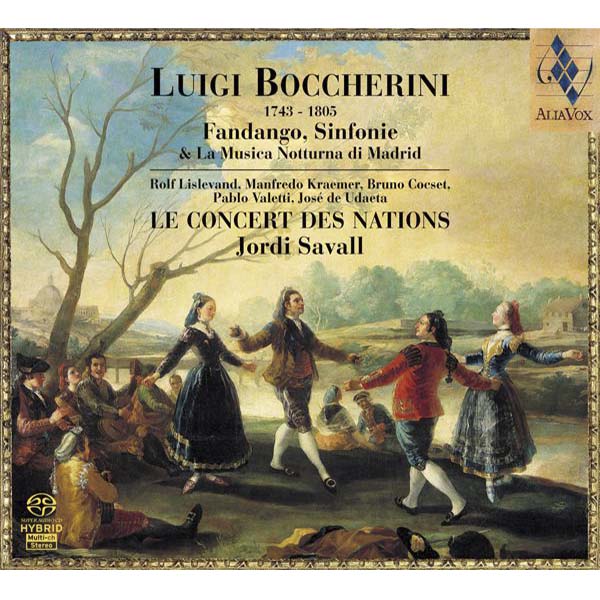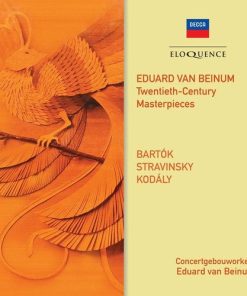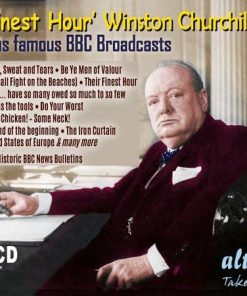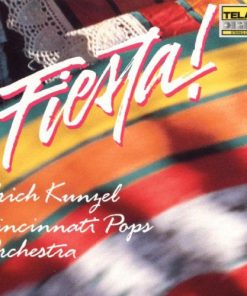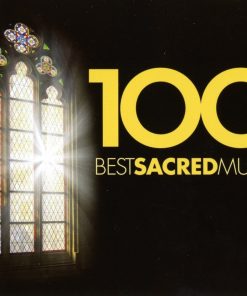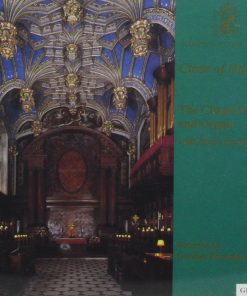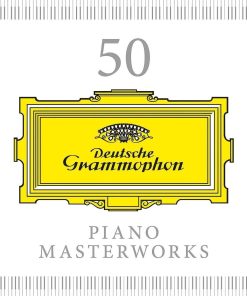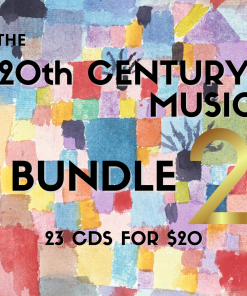BOCCHERINI: Fandango, Simfonie & Musica Notturna di Madrid – LE CONCERT DES NATIONS, SAVALL (SACD) ALIA VOX
$ 22,99 $ 13,79

Although he composed carols, cantatas, oratorios, a mass, motets, the so-called academic (concert) arias for soprano and orchestra to texts by Metastasio and a zarzuela to a libretto by Ramón de la Cruz, most of Boccherini’s output was instrumental music. That was quite unusual in the 18th century, especially in his native Italy, the cradle of opera and a hotbed of both sacred and secular vocal music. Within his large volume of works, Boccherini’s chamber music is pre-eminent, among other things because the composer’s first Spanish period was spent in the service of the King Charles III’s brother, the Infante Don Luis, who, as a great music lover, employed a string quartet made up of members of the Font family. The addition of Boccherini to the quartet explains the unusually high number and quality of string quintets with two cellos among his works.

Quintetto nº 4 in re maggiore “Fandango”per corda et chitarra (G.448) 1798PastoraleAllegro maestosoGrave assaiFandangoSinfonia in re minore,a più strumenti obbligati Op. 37, nº 3 (G.517) Grande 1787Allegro moderatoMinuetto con moto – TrioAndante AmorosoFinale: Allegro vivo, ma non tanto prestoSinfonia Op. 35, nº 3 in la maggiore (G.511) 1782Allegro giustoAndanteAllegro ma non prestoQuintettino in do maggioreLa Musica notturna delle strade di Madrid Op. 30 nº 6 (G.324) 1780Le campane di l’Ave MariaIl tamburo dei SoldatiMinuetto dei CiechiIl Rosario Largo assai – Allegro – Largo come primaPassa calle Allegro vivoIl tamburoRitirata MaestosoRolf Lislevand, guitarraJosé de Udaeta, castanyolesLE CONCERT DES NATIONSBruno Cocset, violoncelManfredo Kraemer, violí concertinoPablo Valetti, violí IIDirecció: Jordi Savall
Fast Shipping and Professional Packing
Due to our longstanding partnership with UPS FedEx DHL and other leading international carriers, we are able to provide a range of shipping options. Our warehouse staff are highly trained to pack your goods exactly according to the specifications that we supply. Your goods will undergo a thorough examination and will be safely packaged prior to being sent out. Everyday we deliver hundreds of packages to our customers from all over the world. This is an indication of our dedication to being the largest online retailer worldwide. Warehouses and distribution centers can be located in Europe as well as the USA.
Orders with more than 1 item are assigned processing periods for each item.
Before shipment, all ordered products will be thoroughly inspected. Today, most orders will be shipped within 48 hours. The estimated delivery time is between 3-7 days.
Returns
The stock is constantly changing. It's not entirely managed by us since we are involved with multiple parties such as the factory and our storage. The actual stock can fluctuate at any time. Please understand it may happen that your order will be out of stock when the order is placed.
Our policy is valid for 30 days. If you haven't received your product within 30 days, we're not able to issue either a return or exchange.
You are able to return a product if it is unused and in the same condition when you received it. It must also still remain in the original packaging.
